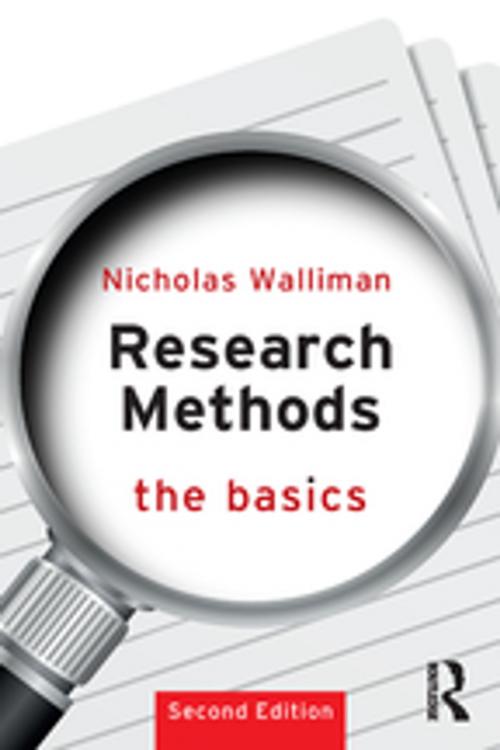Research Methods: The Basics
2nd edition
Nonfiction, Social & Cultural Studies, Social Science, Sociology| Author: | Nicholas Walliman | ISBN: | 9781315528991 |
| Publisher: | Taylor and Francis | Publication: | September 12, 2017 |
| Imprint: | Routledge | Language: | English |
| Author: | Nicholas Walliman |
| ISBN: | 9781315528991 |
| Publisher: | Taylor and Francis |
| Publication: | September 12, 2017 |
| Imprint: | Routledge |
| Language: | English |
Research Methods: The Basics is an accessible, user-friendly introduction to the different aspects of research theory, methods and practice. This second edition provides an expanded resource suitable for students and practitioners in a wide range of disciplines including the natural sciences, social sciences and humanities. Structured in two parts – the first covering the nature of knowledge and the reasons for research, the second the specific methods used to carry out effective research and how to propose, plan, carry out and write up a research project – this book covers:
• Reasons for doing a research project
• Structuring and planning a research project
• The ethical issues involved in research
• Different types of data and how they are measured
• Collecting and analysing qualitative and quantitative data in order to draw sound conclusions
• Mixed methods and interdisciplinary research
• Devising a research proposal and writing up the research
• Motivation and quality of work.
Complete with a glossary of key terms and guides to further reading, this book is an essential text for anyone coming to research for the first time.
Research Methods: The Basics is an accessible, user-friendly introduction to the different aspects of research theory, methods and practice. This second edition provides an expanded resource suitable for students and practitioners in a wide range of disciplines including the natural sciences, social sciences and humanities. Structured in two parts – the first covering the nature of knowledge and the reasons for research, the second the specific methods used to carry out effective research and how to propose, plan, carry out and write up a research project – this book covers:
• Reasons for doing a research project
• Structuring and planning a research project
• The ethical issues involved in research
• Different types of data and how they are measured
• Collecting and analysing qualitative and quantitative data in order to draw sound conclusions
• Mixed methods and interdisciplinary research
• Devising a research proposal and writing up the research
• Motivation and quality of work.
Complete with a glossary of key terms and guides to further reading, this book is an essential text for anyone coming to research for the first time.















